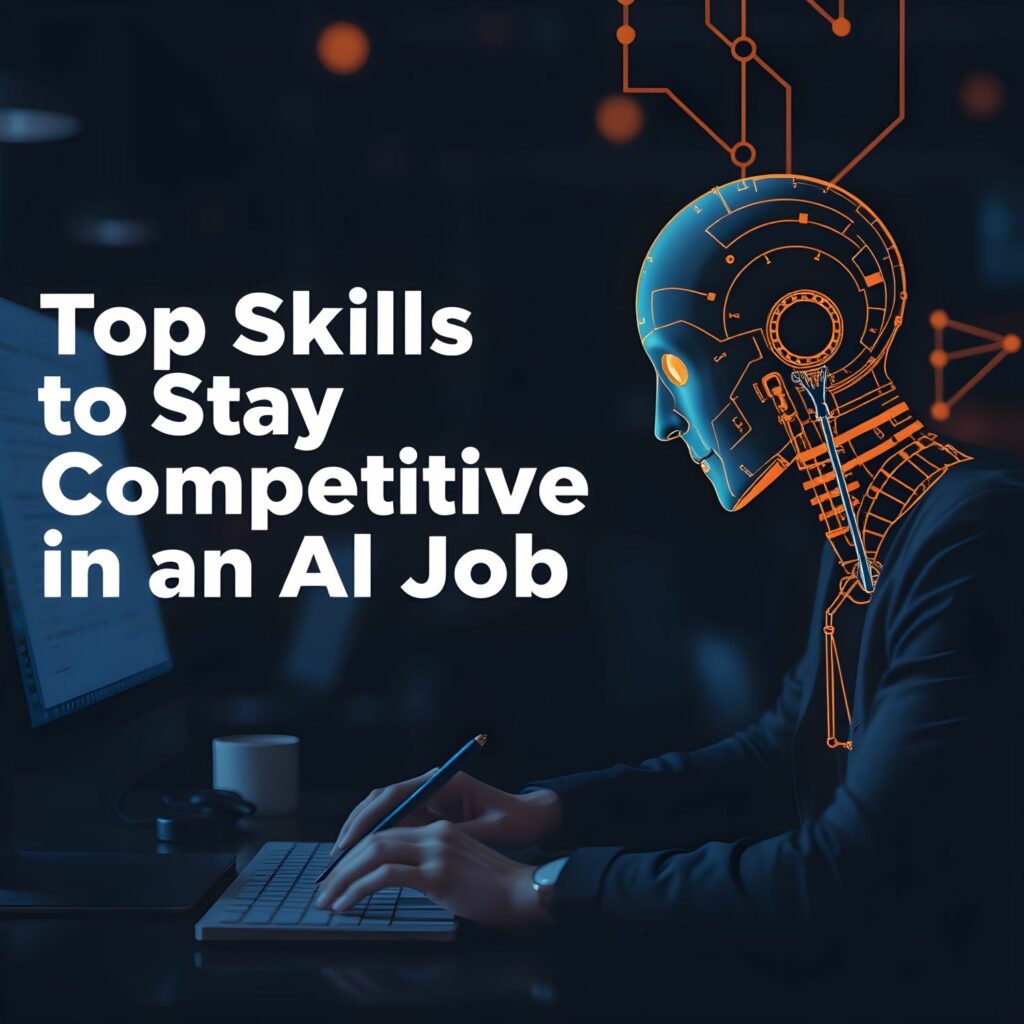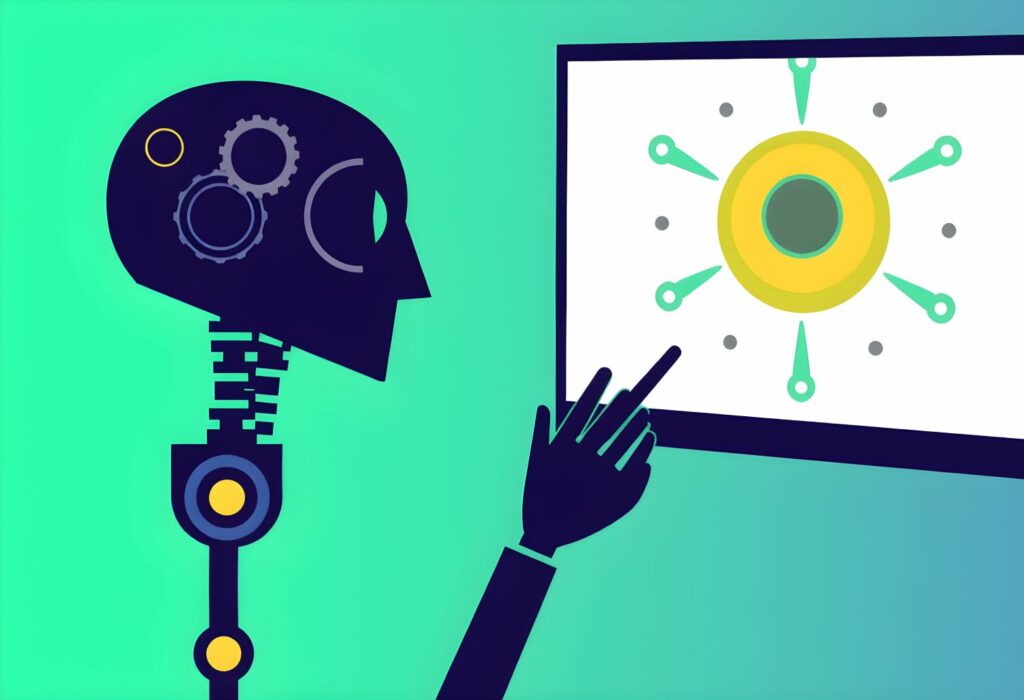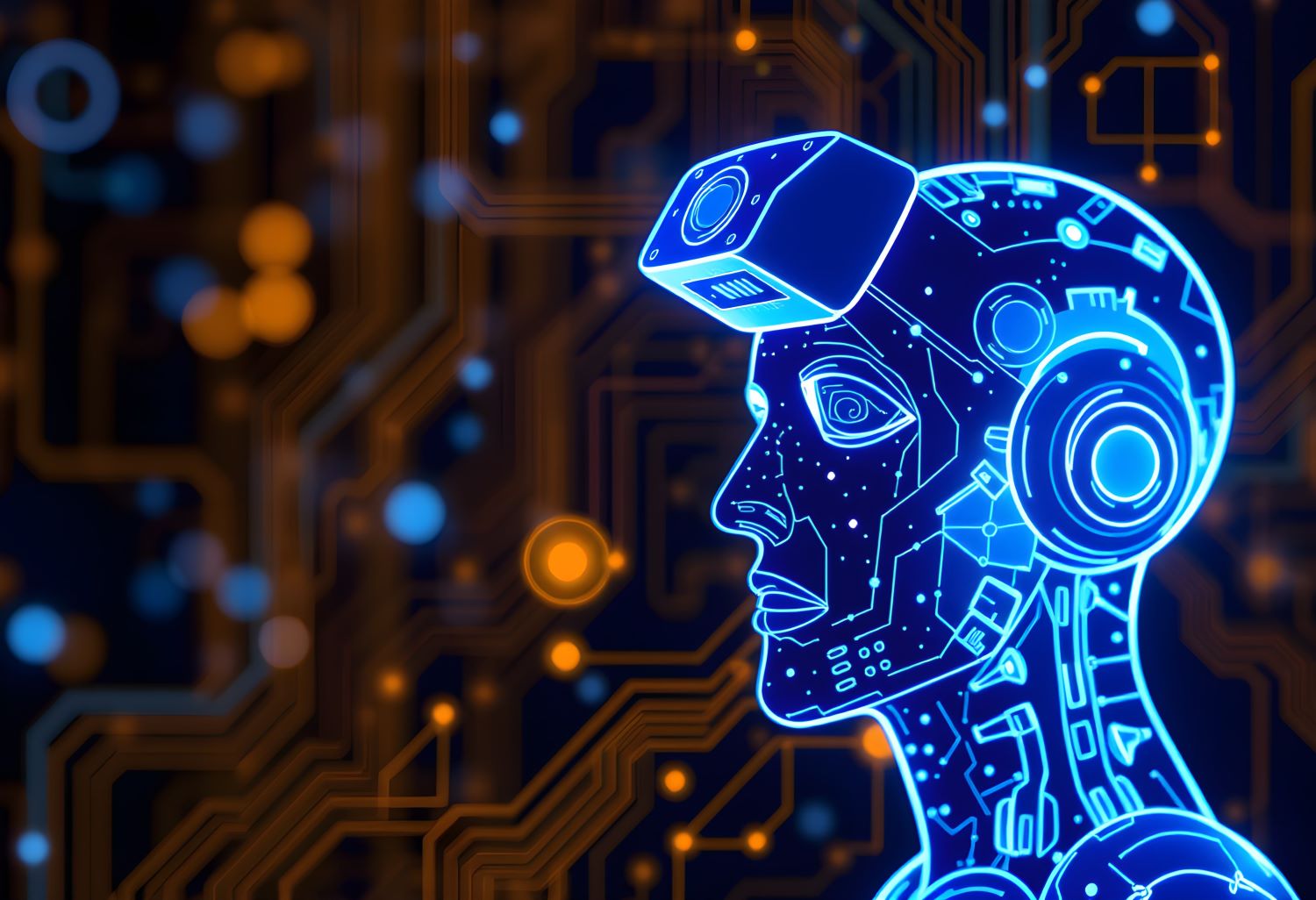Navigating an Era of Accelerated Change
Given the exponential pace of advancement in an AI-driven job market, it has seemingly become impossible to have a future-proof career. The bar is always moving further, and time itself feels “contracted”. What used to be a slow and steady evolution is now a high velocity, accelerated process, with each passing year bringing more rapid changes than the one before it. The result is a post-AI job market landscape that is fundamentally transformed, requiring a new philosophy for achieving future-proof skills.
Not long ago, a common career path meant working at the same company for 20 or 30 years, moving up slowly, and sometimes not moving up at all. Job security often came with longevity, and complete career changes were rare. Fast forward to today, and we see people frequently changing jobs, or even changing careers multiple times within their lifetimes. And it’s not unusual to hear of someone securing a new role after just a six-week bootcamp. This is all a result of a faster paced system, so fast-paced that the only constants in it, are learning agility and career adaptability.
This rapid change is reshaping what it means to be “career-ready.” With technology and artificial intelligence (AI) constantly evolving, the future job market will prioritize adaptability and the ability to learn over traditional credentials. As we look ahead to a world potentially dominated by artificial general intelligence (AGI), this pace of change will only increase, reducing the need for formal, lengthy education or qualifications. In a world where agility and resilience are prized, simply proving you’re capable of doing the job—and demonstrating that you can learn quickly—could soon become the norm.
In this context, developing “future-proof” skills is essential. These are not just the technical competencies that may be in demand today but the adaptable, human-centered skills that will stay relevant even as AI continues to evolve. Let’s look at the most important of these skills and why they’re crucial for anyone aiming to stay competitive in a fast-changing, AI-driven job market.
The Importance of Future-Proof Skills
Future-proof skills are those that remain valuable in the face of rapid technological change. They are adaptable, resilient, and useful regardless of AGI’s capabilities and drastic changes to various functions within our society. Let’s imagine the most extreme case scenario: a future where humans no longer need to work and earn money, because robots and AI are able to carry out everything for us. What we would identify as a “career” then, will likely be much different than how we think of careers today. Thus, we need to turn our attention to skillsets that will be handy even if the protocols of important societal concepts and functions (such as money or careers) evolve immensely.
At a first glance, you might think focusing on what AI struggles to replicate would be a great idea: i.e. creativity and complex problem-solving. However, we are living in the worst case (or best case, depending on how you view things) scenario, remember? AGI is able to do everything! What is the solution now?
To be truly future-proof is to plan for this most extreme scenario, and to do that we need to think more abstractly. If machines can carry out all tasks, from driving our Ubers to doing quantum mechanics research, then it becomes important for us to be able to navigate or even simply use their findings. At some point, doing cutting edge physics research could be as simple as taking an Uber if you’re able to use cutting edge technology. However, is everyone able to use Uber today? Not really, most elderly individuals cannot, because they are not able to use mobile devices or apps. The Uber apps of our generation will be AI driven applications capable of doing very simple and very complex things. The question is, how complex of a concept can you understand and work with? Will you be the elderly individual that gets left behind? Will that happen to our generation at a much younger age?
In the long-term, we won’t necessarily need to have in-depth knowledge of Quantum Mechanics to explore cutting edge research or perhaps to even use some of the findings by AI-led research. Thus, we need to gain the ability to think more abstractly. We need to be able to ask the right questions, understand and break down complex concepts, and to exercise our creativity, all with the help of AI tools within our reach.
Given all this, let’s look at the most important of these skills and why they’re crucial for anyone aiming to stay competitive in a fast-changing, AI-driven job market.
Key AI-Resistant Skills to Cultivate
1. Critical Thinking and Complex Problem-Solving
In a world where AGI can process data and perform tasks with unimaginable efficiency, the role of human critical thinking shifts. It becomes less about solving specific problems and more about evaluating outcomes, understanding deeper implications, and deciding which questions are worth pursuing. Critical thinking will allow us to ask meaningful, strategic questions that help us navigate a landscape shaped by AI-led discoveries. Rather than competing with AGI in raw processing power, our value lies in defining purpose and scope—choosing which paths are worth exploring. This skill will anchor us, providing a human lens to interpret AI’s solutions, ensuring that they align with our broader societal goals.
2. Creativity and Innovation
Creativity may seem like an obvious counter to AI, yet as AGI advances, it will be able to generate solutions and artistic expressions we might never imagine. Here, our creative value evolves into a new realm: rather than simply producing ideas, we may focus on contextualizing them, finding new ways to bring meaning and humanity to what AI produces. Future creativity will involve integrating AI-generated concepts with our own cultural and emotional understanding. The true test of our creativity will be in how we use AI as a collaborative partner—one that we guide, question, and ultimately use to bring about innovation that remains meaningful in human terms.
3. Emotional Intelligence and Adaptability
As AI increasingly manages functional and technical tasks, emotional intelligence—our ability to understand, connect, and empathize—gains new significance. In a future where AI might serve as our primary co-worker, emotional intelligence allows us to adapt, build rapport, and navigate nuanced human-AI interactions. This skill will help us manage relationships, not only with people but with AI systems themselves, adjusting to new modes of collaboration that require high levels of empathy, intuition, and adaptability. Adaptability becomes essential as we learn to recalibrate our approach, continuously adjusting our own behaviors and expectations in response to AI’s ever-growing role in our lives.
4. Abstract and Digital Literacy
Future-proofing ourselves isn’t just about learning to operate technology; it’s about developing an abstract literacy that enables us to understand and manipulate complex systems. Think of it as the ability to not just “use” a technology but to understand its underlying logic, limitations, and potential. In the future, we may not need in-depth expertise in fields like Quantum Mechanics, but we will need the capacity to comprehend AI-generated insights in fields once thought unfathomable. This literacy will enable us to ask informed questions, understand broader implications, and leverage technology as an extension of our own intellectual curiosity and problem-solving capability.
5. Lifelong Learning and Intellectual Resilience
Given the sheer pace of technological advancement, the ability to learn continuously and adapt to new knowledge will be the ultimate future-proof skill. Learning in the future may not involve formal degrees; it may simply require a willingness to engage with new ideas, adapt, and let go of past expertise that no longer serves. Intellectual resilience—our capacity to remain open, curious, and willing to reframe our understanding as the world changes—will become the foundation of our adaptability. The true test of our resilience will be our ability to stay intellectually agile, capable of pivoting as new technologies emerge and redefine the world around us.
Practical Steps to Develop These Skills
As we discussed, developing future-proof skills isn’t just about mastering individual techniques; it’s about adopting an approach to learning and thinking that stays resilient in the face of unknown, fast-evolving challenges. Here are some actionable steps to build each skill and cultivate a mindset that thrives in an AI-driven world.

1. Cultivating Critical Thinking and Complex Problem-Solving
- Engage with Diverse Fields: Expose yourself to a variety of disciplines outside your immediate expertise. Studying fields like philosophy, ethics, and systems thinking can help you develop new frameworks for assessing and questioning the implications of AI-generated insights. Regularly engage with challenging material that pushes you to think beyond immediate problem-solving.
- Practice Scenario Analysis: When faced with a problem, try not only to solve it but to explore multiple “what-if” scenarios around it. This process can develop your ability to think critically about potential outcomes and unintended consequences—skills that are essential for guiding AGI’s results toward meaningful applications.
- Join Debate and Discussion Groups: Participate in online or local debate clubs focused on technology, ethics, or futurism. Debating AI-related topics sharpens your ability to assess arguments critically, enhances your communication skills, and exposes you to different perspectives, all of which reinforce critical thinking.
2. Enhancing Creativity and Innovation
- Use AI as a Creative Partner: Experiment with AI-driven tools for idea generation, such as AI-powered brainstorming or content creation platforms. Rather than seeing AI as a competitor, learn to treat it as a collaborative partner that can inspire new ideas or serve as a sounding board. The key is to use AI to expand your creative process, not to replace it.
- Explore Cross-Disciplinary Art and Design: Creativity thrives at the intersection of fields. Engage in activities that blend different disciplines, such as data-driven art, AI-enhanced music composition, or using AI to design architectural concepts. This interdisciplinary approach fosters innovation by allowing you to see beyond conventional boundaries.
- Set Creativity Challenges: Regularly practice creative problem-solving by setting mini-challenges for yourself. For instance, try to solve a complex problem with a “zero budget” solution or approach it from the perspective of a different profession. This helps in developing adaptability and finding alternative ways to leverage both AI and your own creativity.
3. Developing Emotional Intelligence and Adaptability
- Practice Active Empathy in Digital Interactions: As more of our interactions happen online, practice empathy actively by being mindful of communication cues in virtual meetings, text conversations, and digital collaboration tools. Learn to interpret and respond thoughtfully to others’ needs, even when communication is remote.
- Engage in Role-Playing or Immersive Scenarios: Simulate challenging situations that require emotional intelligence, such as resolving conflicts or leading a team through change. Role-playing helps you practice empathy, adaptability, and problem-solving, especially when collaborating with virtual or AI-driven colleagues.
- Develop Adaptability Exercises: Challenge yourself to break routines. For example, use new digital tools regularly, work with new team members frequently, or experiment with AI-assisted workflows. Adapting to new tools and environments strengthens your flexibility, allowing you to pivot more easily when new technologies emerge.
4. Building Abstract and Digital Literacy
- Regularly Engage with Emerging Technologies: Stay updated on the latest advancements in AI, machine learning, and digital platforms. This doesn’t mean mastering every new tool but familiarizing yourself enough to understand their potential uses and limitations. Take free courses or tutorials on platforms like Coursera, edX, or even YouTube to build a foundation in understanding emerging tech.
- Practice Breaking Down Complex Concepts: One of the most valuable skills is the ability to deconstruct and explain complex ideas. Regularly challenge yourself to summarize or teach a complex concept to someone without a technical background. This will improve your ability to interact with and leverage new technologies, even those that may seem complex.
- Develop a Personal Knowledge Management System: Use a digital platform (e.g., Notion, Roam Research, or Obsidian) to document and structure your learning. This practice reinforces abstract literacy by helping you build connections between diverse ideas, concepts, and technologies, creating a knowledge web that mirrors the interconnected world of AI and AGI.
5. Strengthening Lifelong Learning and Intellectual Resilience
- Learn to “Unlearn” Regularly: The ability to “unlearn” old ways of thinking and adapt to new paradigms is key in a world of constant change. Regularly review your assumptions, especially when it comes to technology and workflows, and question if they still hold true. Practicing this kind of intellectual flexibility will make it easier to adapt and remain relevant as the world shifts.
- Adopt a Growth Mindset in All Learning Experiences: Embrace challenges as opportunities to learn and grow, and actively seek out new knowledge even when it feels uncomfortable. This mindset will keep you resilient as technology reshapes industries and demands continuous skill adaptation.
- Participate in Continuous Learning Programs: Enroll in micro-courses, certification programs, and workshops that encourage ongoing learning. Rather than waiting for a skill gap to appear, proactively build knowledge in areas related to technology, critical thinking, and adaptability. Consider programs with flexible formats, such as online courses or self-paced workshops.
As you work on building these future-proof skills, consider taking advantage of resources that are designed to help you grow adaptively. Lemmaa, for instance, is dedicated to equipping individuals with the skills necessary to thrive in an AI-driven world. Our modern approach focuses on fostering adaptability, critical thinking, and continuous learning through innovative educational strategies. It offers project-based learning and personalized educational paths that focus on honing critical thinking, creativity, and emotional intelligence—skills that remain valuable even in the face of rapid technological change. Lemmaa’s unique AI mentorship approach provides support that adapts to your individual learning needs, ensuring that you’re not just learning for today’s job market, but preparing for the demands of tomorrow.
Additionally, resources like online courses, workshops, and professional groups can be invaluable. Platforms like Coursera and edX offer specialized programs for continuous skill development, while professional networks, local meetups, and even discussion forums are excellent for fostering critical thinking and creativity. Whether you choose a structured program like Lemmaa or blend it with other learning opportunities, embracing a lifelong learning mindset and staying open to new ideas will equip you to thrive in a fast-changing world.
Closing Remarks
As the pace of technological change continues to accelerate, future-proof skills will be the key to long-term career resilience. In a landscape where adaptability and learning agility may soon become more valuable than traditional qualifications, focusing on developing these AI-resistant, human-centered skills can provide the competitive edge needed to thrive. Embrace the journey of continuous learning and skill-building—your future self, equipped to handle the world of tomorrow, will thank you.
Massih Medi is a physicist-turned-entrepreneur and founder of Lemma Alpha, an AI-powered education platform equipping learners with future-proof skills for the post-AI era. He’s focused on education designed for the artificial super intelligence era, providing students with AI-driven critical skills training tailored for the evolving job market. He also leads D&C Innovation, where he guides software engineering teams in building and maintaining applications for tech startups, leveraging his scientific background to design and architect complex digital solutions.



